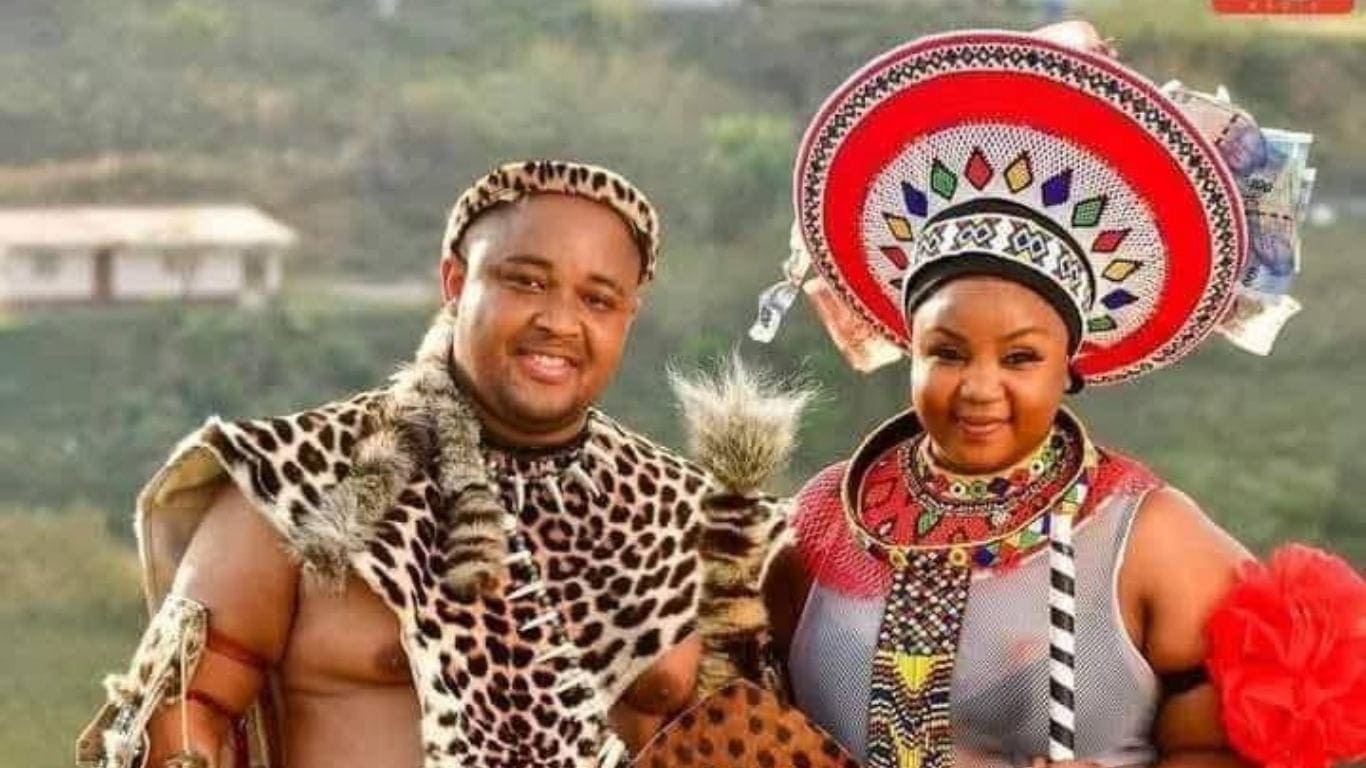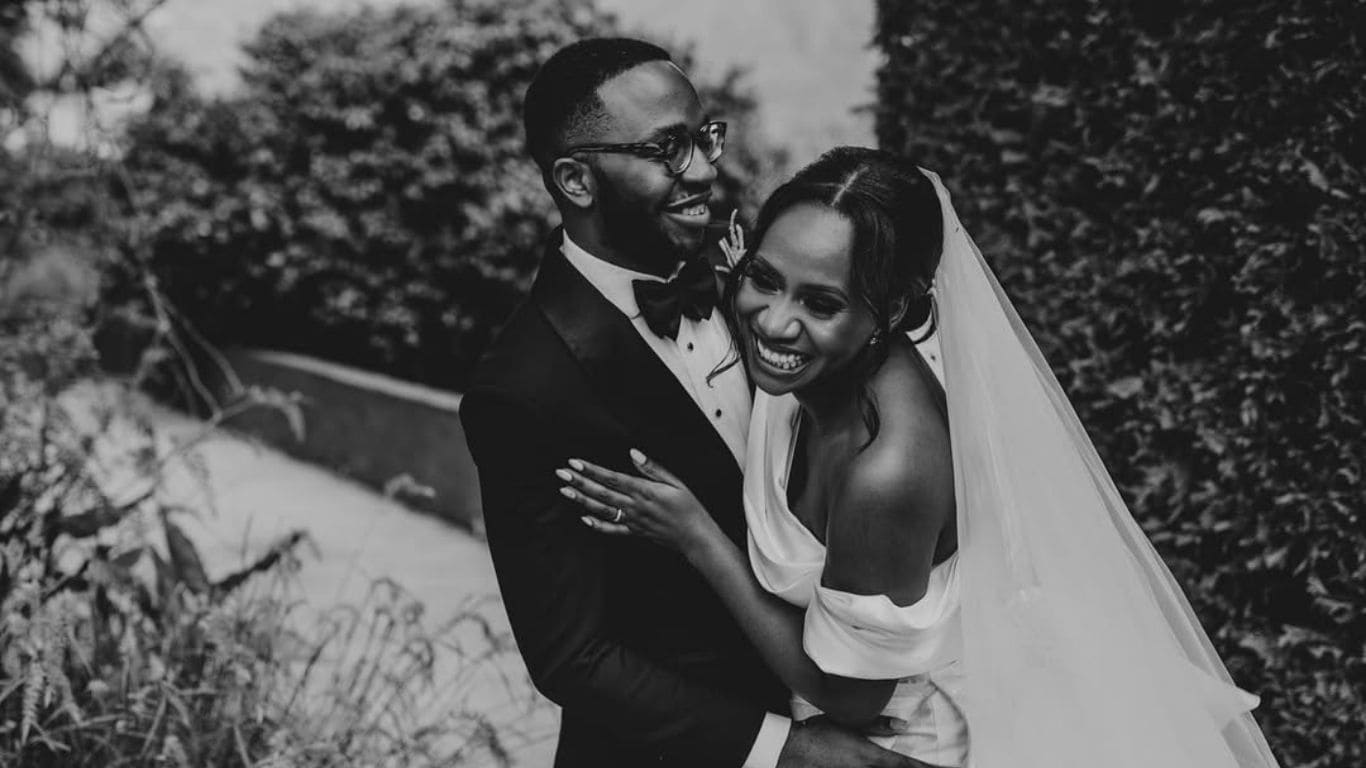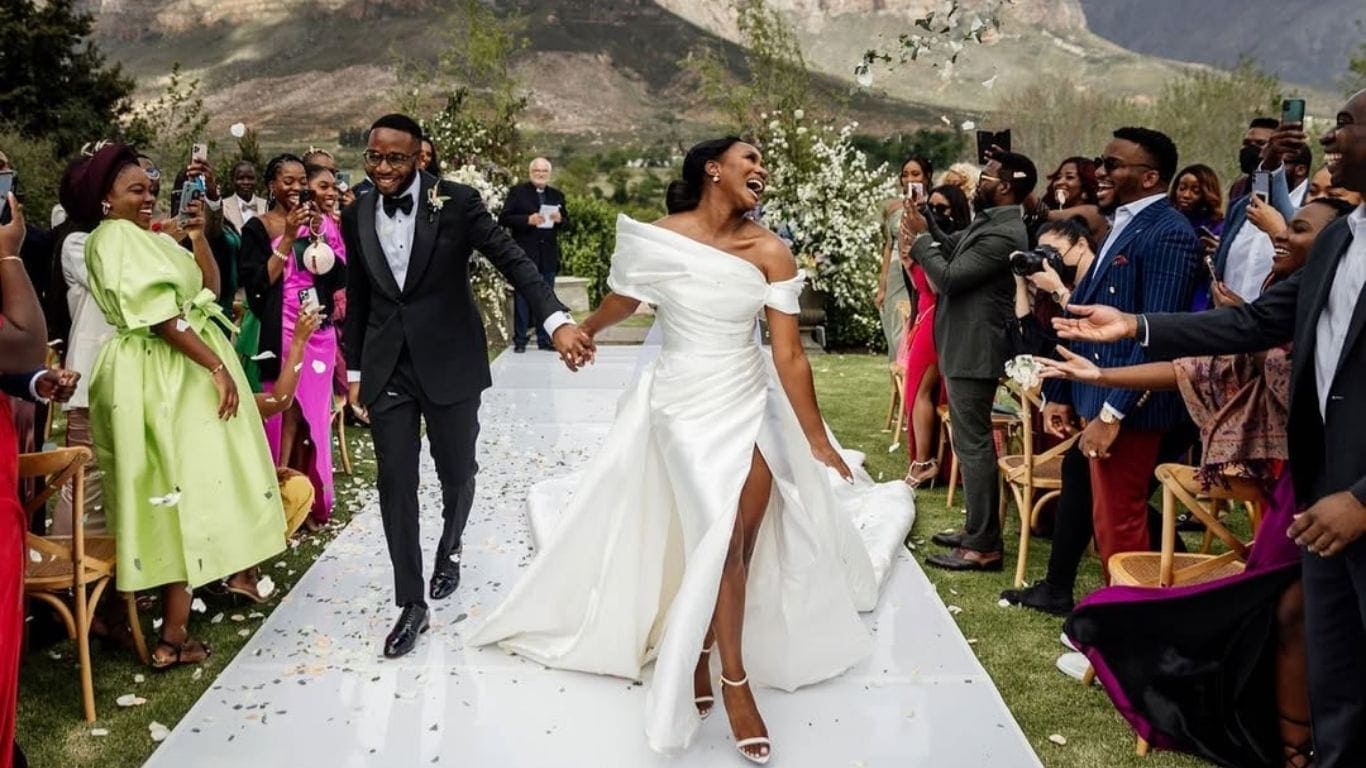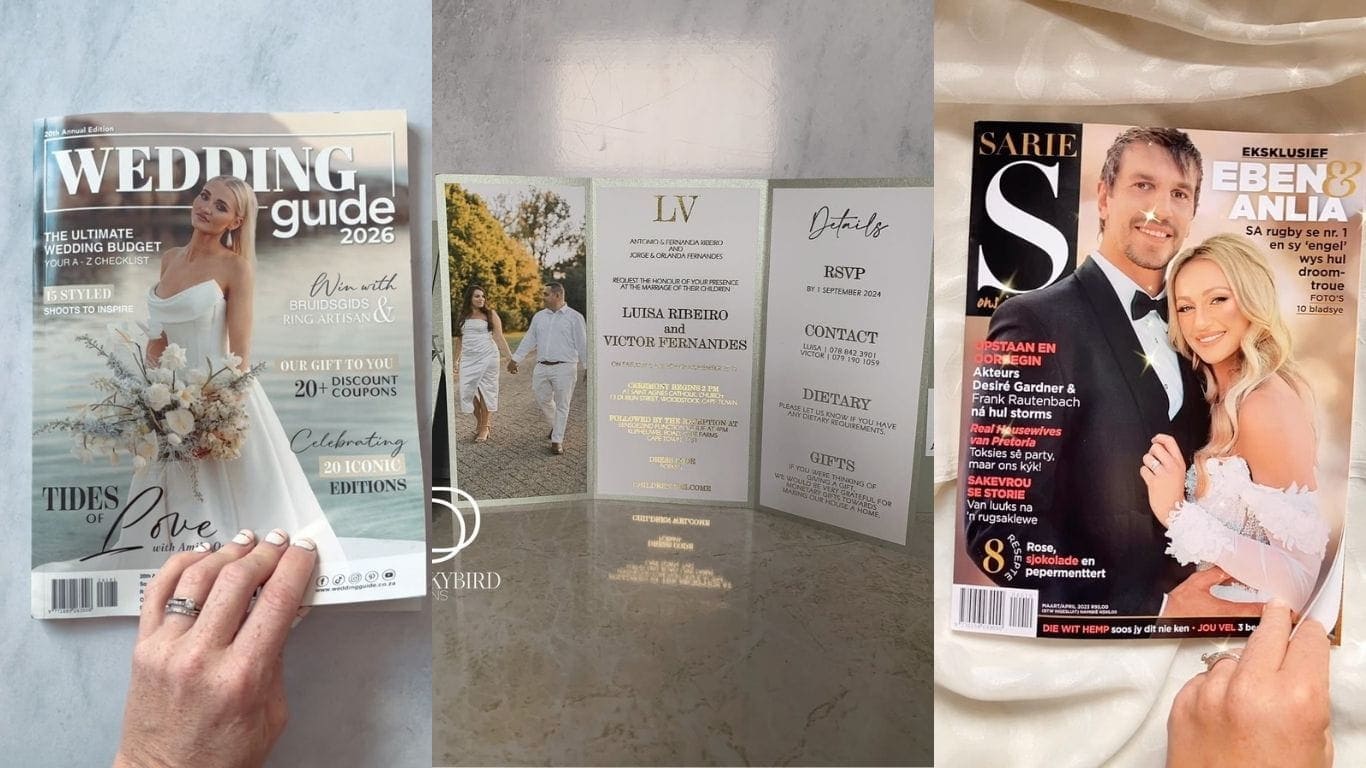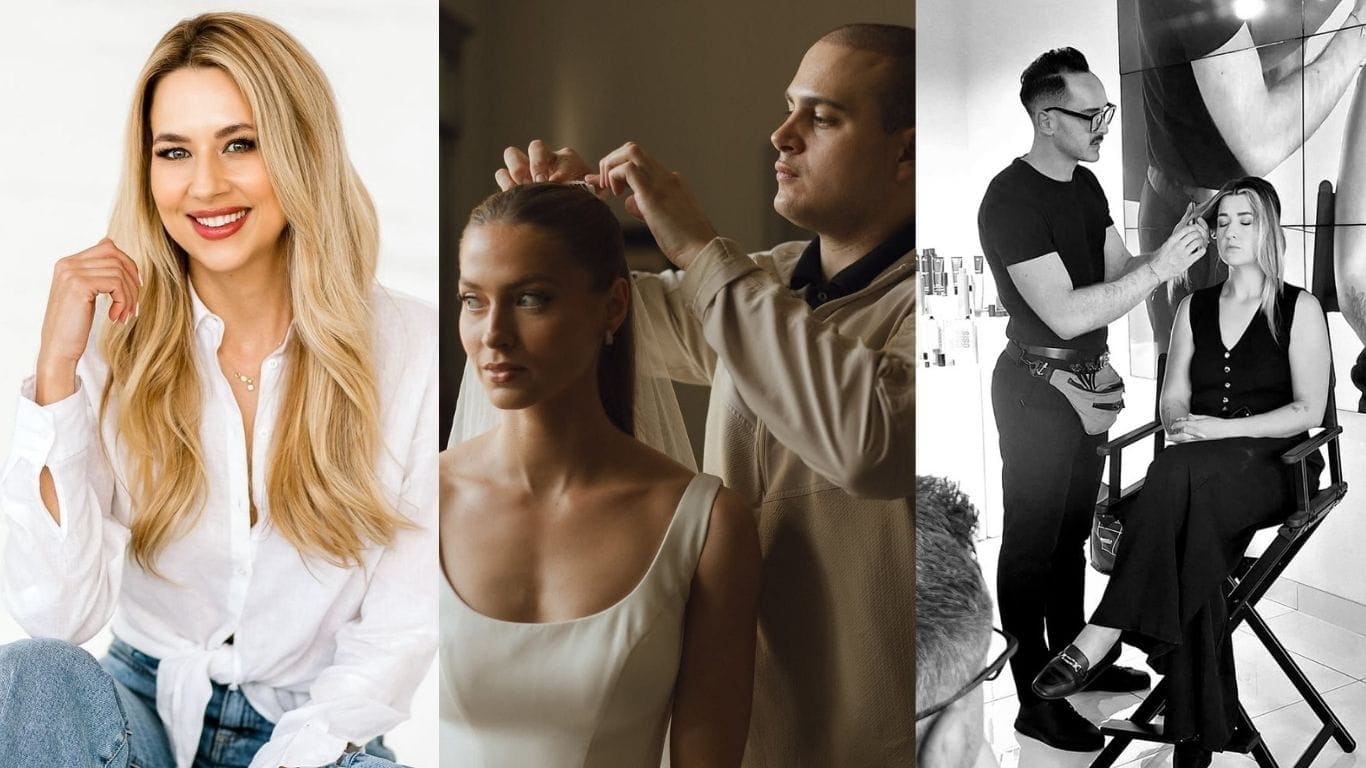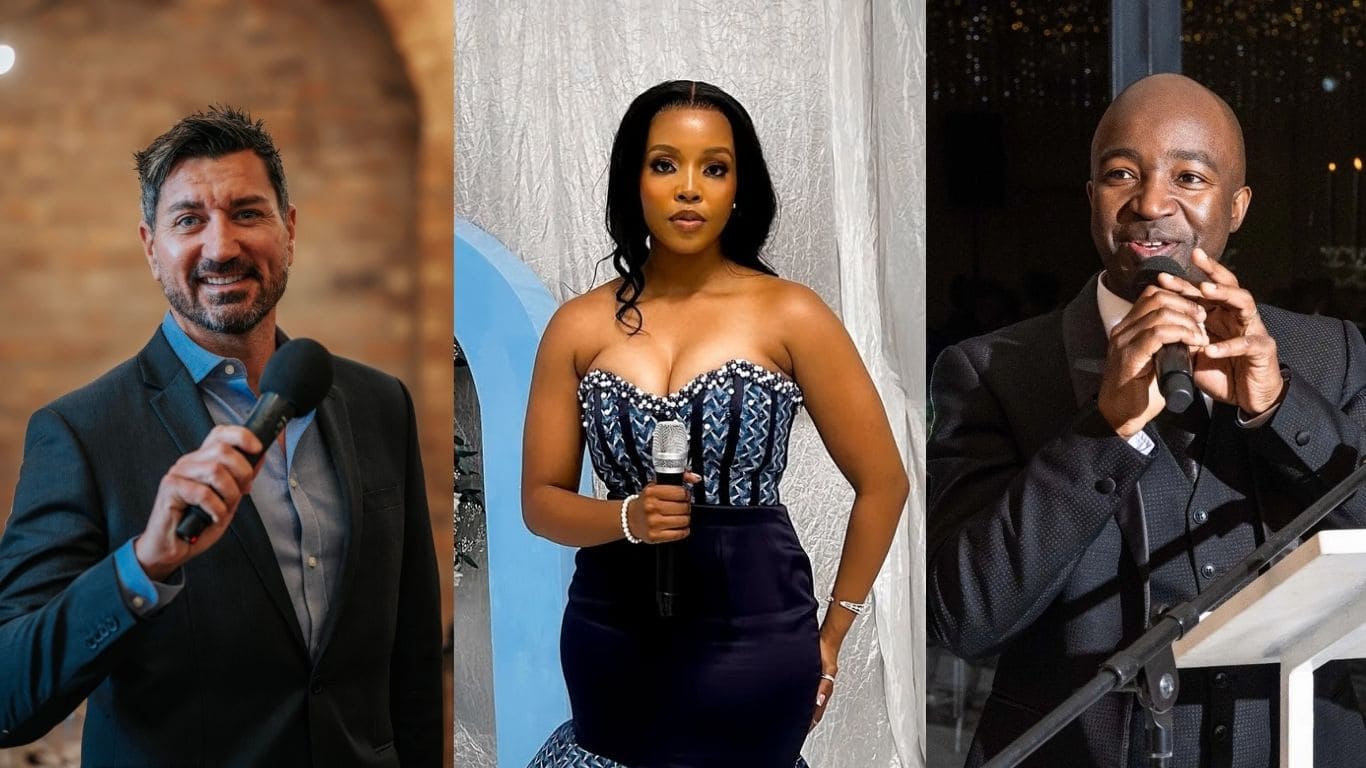Attending a traditional Kenyan wedding? Here’s everything about how the Maasai, Kikuyu, Kamba, Luo, Samburu, Swahili, Kisii, and other tribes dress.
A year ago, someone posted on the Kenyan subreddit asking for advice: “I’m attending a wedding this October. I bought a black dress and pink accessories, but the invitation says dress code: colorful. Should I still wear black, or get something else?” She added that she wasn’t just asking out of curiosity, saying, “when I have mine, if you don’t follow the dress code, hutaingia ndani.”
That question got people talking, and it got us at Janatribe thinking, too. Dress codes at Kenyan weddings aren’t just about color palettes or trends. They reflect culture, pride, and the joy of two families coming together. So Janatribe is breaking it down: how Kenyans dress, why it matters, and what makes it unique.
So, what does that really look like in practice?

What do Kenyans wear for weddings?
Across Africa, wedding fashion follows a familiar rhythm. Traditional ceremonies bring out cultural attire, white weddings feature elegant gowns and suits, and receptions turn into full-on fashion shows with red-carpet-worthy looks. Kenya is no different; every stage of the celebration has its own style, and every outfit tells a story.
At traditional weddings, families proudly wear attire that reflects their heritage, whether it’s Maasai shukas, Kikuyu lesos, or Swahili kanzus and buibuis. The colors, fabrics, and beadwork all carry meaning, symbolizing unity, pride, and respect for both families.
But beyond the couple, guests and vendors play a huge role in maintaining the wedding’s visual harmony. Dress codes aren’t suggestions; they’re part of the celebration. Whether the invitation says “colorful,” “all-white,” or “touch of gold,” it’s expected that everyone—from photographers to aunties—dresses in line with the theme. It’s a sign of respect for the couple and the culture they’re celebrating.

What do couples wear on their wedding day?
At most traditional Kenyan weddings, the couple’s outfits are designed to complement each other, visually and symbolically. Their colors often match or coordinate, reflecting unity between the two families. You’ll see pairs dressed in fabrics like kitenge, kente, or leso, tailored into modern cuts with traditional detailing. It’s a balance between heritage and personal style.
In recent years, many Kenyan brides have drawn inspiration from Nigerian aso-oke and lace designs, opting for grand, embellished looks that blend continental trends with local flair. Still, Kenya’s traditional wedding wear is striking, whether a Kikuyu bride wrapped in lesos, a Maasai bride adorned in layered beads and red shuka, or a Swahili bride in a richly embroidered dera. For white weddings, brides typically wear gowns in Western styles, often paired with African-inspired accessories or reception changes that nod back to their culture.
For grooms, traditional wear varies across tribes but always carries a sense of authority and pride. Kanzu robes, agbada-style outfits, and tailored kitenge suits are common for traditional ceremonies, depending on heritage and theme. At the white wedding, most men wear formal suits or tuxedos, often with small cultural touches like beadwork, kitenge linings, or symbolic colors that complement the bride’s attire.
What to wear to a Kenyan wedding as a guest?
Across Kenya, much like in other African countries, wedding guests are expected to dress vibrantly and respectfully. Tradition favors bright colors, expressive prints, and neat presentation. Black is usually avoided, as it’s associated with mourning and bad luck. As wedding planner Salima Bertoglio of Kwa Moyo Weddings explains, guests are encouraged to wear colorful clothes that reflect the festive spirit.
In some communities, women tie a lesso or kitenge around the waist, with another covering the shoulders or upper body. Men might carry a small leather bag known as a mwangeka or wear traditional shirts paired with trousers or khakis. Today, many guests mix cultural elements with contemporary fashion; think Ankara dresses, kitenge suits, or coordinated family prints.
Most importantly, guests are expected to follow the dress code stated on the invitation. Whether it’s “colorful,” “all-white,” or “touch of gold,” Kenyans take these themes seriously. It’s not about restriction; it’s about respect. Vendors are also encouraged to align with the theme, maintaining the visual harmony of the event. After all, Kenyan weddings aren’t just ceremonies; they’re expressions of culture, creativity, and pride.

Understanding Marriage in Kenya
In Kenya, marriage isn’t just a romantic step between two people. It’s a rite of passage, a moment that binds families, clans, and even ancestors. When a couple decides to marry, they’re not just joining their lives; they’re extending the story of their lineage.
Salima Bertoglio, founder of Kwa Moyo Weddings, explained it best in her interview with The Knot: “In Kenya, weddings are considered a rite of passage which a grown-up is expected to undergo. It involves the exchange of vows either verbally, exchange of rings, by payment of dowry, blood (the groom cuts his arm and the bride sucks his blood and vice versa). This rite of passage involves the social unit of families.” She went on to describe how the process involves more than just the couple: grandparents, parents, uncles, aunties, siblings, neighbors, and, in some traditions, even the spirits of ancestors are part of the ceremony.
That’s what makes marriage in Kenya feel bigger than love. It’s not just a promise between two people but a covenant witnessed by the living and the departed. Every gift exchanged, every song sung, and every word spoken carries layers of meaning. The bride’s attire, the family’s offerings, and the rituals performed are all woven with respect, history, and faith.
And yet, this sense of heritage flows easily into modern life. In a 2023 interview with The Wedding Mission, author Keine Kommentare spoke with Mercy Karimi, owner of Mimi Events Planners in Mombasa. Mercy shared how Kenya’s wedding season mirrors the rhythm of family and community life. “Our high season runs from August to December,” she said. “That’s when people take holidays, schools close, and families can finally come together. December is especially busy—out of the fifteen weddings I planned last year, ten were within those months.”
Her words reveal how deeply social the idea of marriage still is. Weddings aren’t slotted into a calendar for convenience; they’re timed so that everyone can be there—from elders who bless the union to cousins who dance till dawn. Even as trends shift and new influences arrive, the heart of it remains unchanged: marriage is a collective celebration of belonging.

Types of Marriages in Kenya
Across Kenya, love takes on many forms, and so do the ceremonies that seal it. Some couples choose traditional or customary weddings, where ancestral rituals are performed before elders. Others prefer civil marriages, recognized by law, or religious weddings held in churches, mosques, or temples. Many couples now blend all three, crafting a journey that honors heritage and modern life.
As Mercy Karimi explained, traditional weddings often happen in the countryside, where the groom and his family travel to the bride’s home to declare their intentions. Elders gather, prayers are said, and negotiations begin. “There are usually several ceremonies before the final celebration,” she said. “Each step brings the families closer.” Guests arrive dressed in Ankara prints, carrying gifts and laughter, while the bride’s family prepares feasts that last for hours.
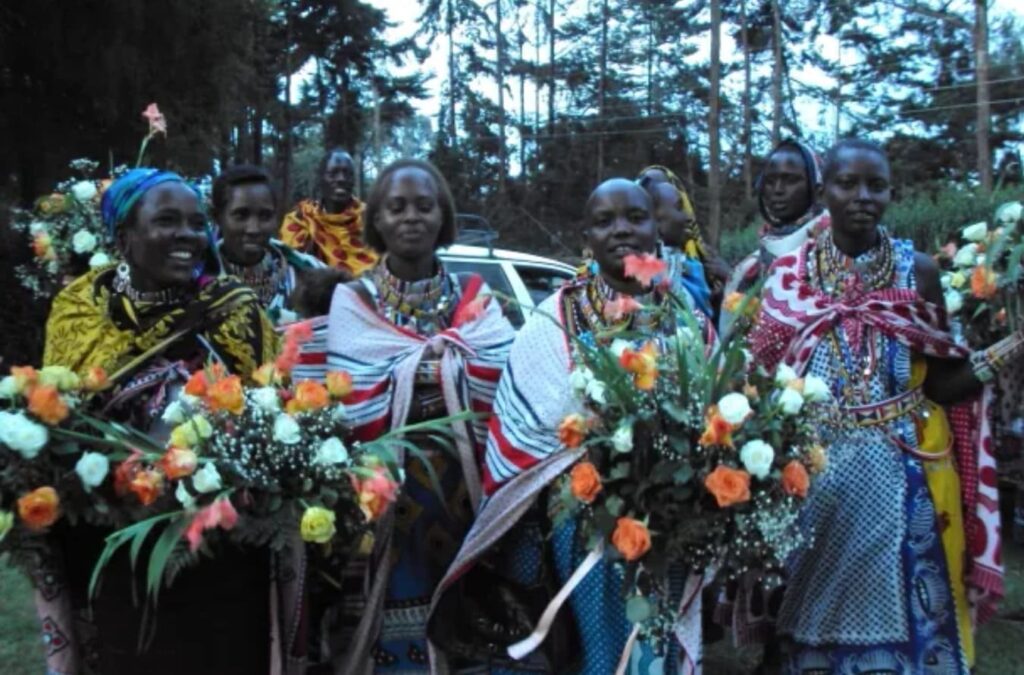
Image Source: akikiskenyanweddings
The white wedding, on the other hand, often comes later—a modern celebration that layers elegance over tradition. It’s usually smaller, with guests, and usually held in coastal destinations like Diani or Mombasa. There, the sea breeze replaces the village drumbeats, but the feeling of unity stays the same. Guests travel down, stay a few days, and turn the wedding into a shared holiday of love and joy.
Some couples skip the white wedding altogether, stopping at the traditional rites, while others begin with a church ceremony and end with a cultural homecoming. Either way, the essence remains: a deep respect for family, a recognition of heritage, and a belief that marriage, no matter how it’s celebrated, is both a beginning and a continuation.
In Kenya, every wedding tells two stories—one of love between individuals, and another of belonging between families. That blend of old and new, personal and communal, keeps Kenyan weddings alive and endlessly beautiful.


